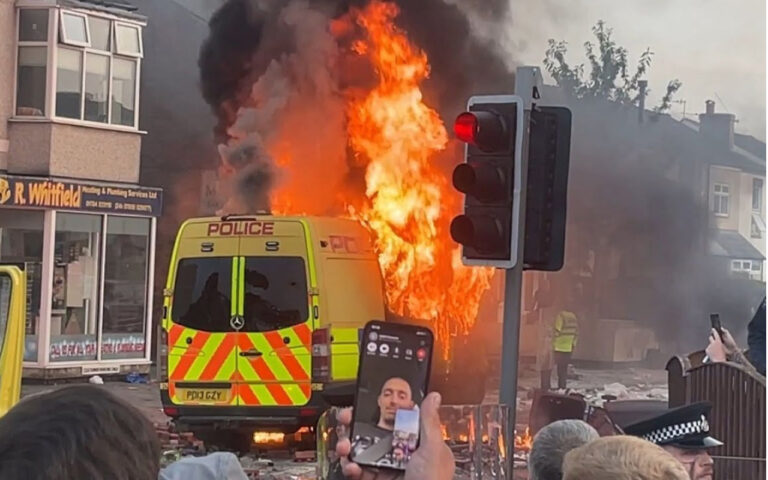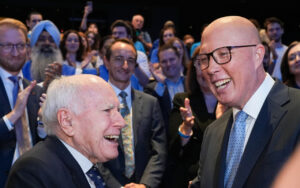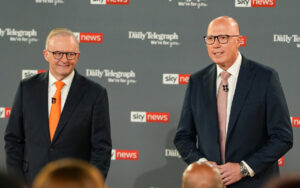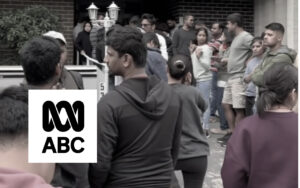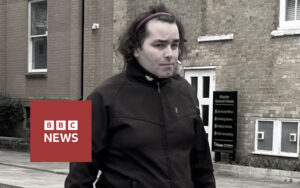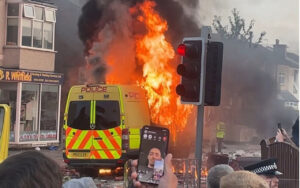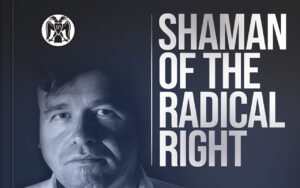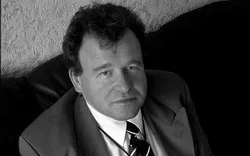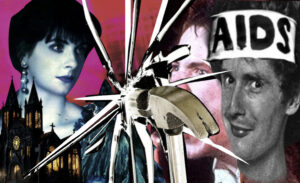A leading academic has warned of the “practically inevitable” occurrence of civil war within western societies within the next five years.
David Betz, a professor of War Studies at King’s College London, has declared a “high statistical probability” of civil conflict “within one or more of at least a dozen countries” before 2030, after which it is extremely likely that this conflict will “metastasize” to other countries.
Betz describe Western states – including Britain, France and America – as “explosively configured” or as proverbial “powder kegs” or “ticking time-bombs” waiting to go off.
Betz’s comments come from a range of podcasts he has appeared on and are based on a 2023 paper he wrote for Military Strategy Magazine titled Civil War Comes to the West.
According to Betz, the chief cause of our impeding conflict is multiculturalism.
Instead of the praise that diversity usually receives among elites, Betz views it as a highly destructive phenomenon. As he writes, multiculturalism (or “identity politics”) is a situation “in which people having a particular racial, religious, ethnic, social, or cultural identity tend to promote their own specific interests or concerns without regard to the interests or concerns of any larger political group.”
Multiculturalism, therefore, is not a source of strength but its polar opposite.
“It is this above all that makes civil conflict in the West not merely likely but practically inevitable,” Betz writes.
In further support of this point, Betz cites key political figures such as former British PM David Cameron and ex-German Chancellor Angela Merkel.
The former chancellor, Betz writes, “once pointed the finger directly at multiculturalism, declaring that in Germany it had ‘utterly failed’.” This was later echoed by Cameron, who stated that multiculturalism “ghettoises people into minority and majority groups with no common identity”.
It is worth emphasising that these remarks do not come from fringe or “far-right” figures, but by the leaders of major European states, both of whom Betz describes as “noteworthy centrists”.
Nations that have adopted multiculturalism have seen a “collapse of trust”, a “draining of social capital” and an “acceleration of factional polarisation”, Betz adds.
This has been encouraged and “inflected by the introduction of identity politics” as the new social norm and has led to the “shattering of a generation of pre-political loyalties of national populations”.
Betz writes that the failures of multiculturalism are manifest in two main ways.
Firstly, they are seen in the ire of common people towards the ruling class, but they are also seen in increasingly obvious inter-group tensions, and Betz writes that the West is now witnessing the “twin vectors” of “a popular revolt against elites” and an emerging “inter-ethnic civil war”.
Betz further cites popular British political commentators Matthew Goodwin and David Goodhart in support of his thesis, as well as Russian-American theorist Peter Turchin, whose work highlights the problem of “political disintegration”.
For, as Betz observes, what we in the West are now experiencing is nothing less than the exhaustion of the post-war liberal order as we approach the “limits of managed democracy” or the end of what others have termed “technocratic managerialism”.
Put simply, our elites’ managerial techniques “no longer work”. “Economically, politically and socially, the West is in the end game,” Betz states.
This has become essentially undeniable as the situation in Western states almost exactly mirrors what the academic literature describes as the “perfect conditions” for civil war.
“It is not simply that the conditions are present in the West; it is, rather, that the conditions are nearing the ideal,” Betz writes.
Betz – citing American expert on civil conflict Barbara Walter – writes that Western states have a trio of trends that are highly-predictive of serious internal strife.
The first is the presence of factionalism – in particular the rise of explicitly ethnic or ethno-religious blocs. The second is the loss of status – or “downgrading” – of the formerly dominant majority. The third is a general loss of faith in society and in the future.
This last trend is especially prevalent among the young and is accompanied by an overall loss of belief in the possibility of social change via normal political methods. Indeed, as Betz affirms, all of these phenomena are “startlingly evident across at least a dozen Western states”.
The young, as mentioned, are particularly badly affected. Relative to their parents, today’s youth are “less likely to own property”, they are “less likely to get married and procreate”, and they are “less likely to earn an equivalent amount of money”. The entire generation is now subject to “declining expectations”’.
Yet the most important driver of civil conflict is “downgrading” or the loss of status of a once-dominate majority. Betz, citing the academic literature, explains that “downgrading” is a term used in civil-war theory that “refers to the perception of a dominant group that what is occurring to them is … a situation of status reversal, not just political defeat”.
“Dominant groups go from a situation where, one moment, they get to decide whose language is spoken, whose laws are enforced, and whose culture is revered, to a situation where they do not.”
This “downgrade” is thus a key casual factor in civil conflict and it is evident across the West. This is especially concerning as the most unstable countries, per Betz, are not highly diverse states (which struggle to unify) but “moderately homogenous societies, particularly when there is a perceived change in the status of a titular majority, or significant minority, which possesses the wherewithal to revolt on its own”.
This is obviously the situation now seen across Europe, North America and Australasia, with “White majorities (trending rapidly toward large minority status in some cases) [which] live alongside multiple smaller minorities”. This also explains the heavy-handed approach Western governments have taken to any form of “White nationalist” or “ethnic particularist” movement, no matter how numerically small.
Yet what has further enflamed tensions is that Anglo-European or “White” majorities are also subject to “a sort of ‘asymmetric multiculturalism’ in which in-group preference, ethnic pride, and group solidarity – notably in voting – are acceptable for all groups except Whites for whom such things are considered to represent supremacist attitudes that are anathematic to social order”.
This has led to a circumstance in which there is a is “a perception that the status quo is invidiously unbalanced, which provides an argument for revolt on the part of the White majority (or large minority) that is rooted in stirring language of justice.”
These are thus the chief causes of what Betz believes is the almost-certain presence of some form of imminent civil war.
The exact form this will take, however, is still unknown. Betz writes that in some countries it may resemble a “Latin-American style dirty war” but in others it may be more akin to the Troubles of Northern Ireland. Yet all states involved will experience a “generalised state of violent civil disorder and accelerating economic decline”.
Crucially, Betz states that our impending internal conflict is likely to involve attacks on urban infrastructure. Utilities such as gas pipelines, electricity grids, and transport and telecommunications networks are all expected to be targeted.
This will result in almost-immediate urban chaos and it will lead to a situation in which “large cities will be practically unliveable for normal people”.
This will precipitate a flight from the cities and a de-facto civil conflict between urban and rural areas. These tensions will be further exacerbated by the ethno-racial reality that rural areas are much more demographically homogenous than their urban counterparts.
Betz writes: “There is a distinctively observable urban-rural dimension to immigrant settlement patterns: basically, the cities are radically more heterogenous than the countryside. Thus, logically, we may conclude that civil wars in the West that burn across ethnic cleavages will have a distinctively rural vs. urban character.”
Indeed, in a further rebuke to our left-liberal utopians, Betz confirms that our impending civil conflict will be strongly determined by ethnicity: “We may observe that the civil wars for which the West is in store will be demarcated along ethnic lines.”
Betz further adds that “approximately 75% of post-Cold War civil conflicts have been fought by ethnic factions” and that we may descend into a nightmarish internal conflict that is “a free-for-all, neighbour-on-neighbour, based on beliefs and skin colour and religion”. A situation, of course, which “would be horrific”.
In support of this, Betz refers to recent ethno-religious tensions in the UK. As he writes, an “intertribal conflict” has emerged in Leicester which has “witnessed recurring violence between the local Hindu and Muslim populations, both sides animated by intercommunal tensions in distant south Asia”, with a Hindu mob marching “through the Muslim part of town chanting ‘Death to Pakistan’.”
These cases of natural tribal affinity clearly undermine the notion of civic nationalism. As Betz observes, what this reflects above all “is the considerable irrelevance of Britishness as an aspect of the pre-political loyalty of significant fraction of two of the largest minorities in Britain. Who wants to fight whom and over what? The answer in this case to this good strategic question has very little to do with the nominal nationality of the people who have observably already begun to fight.”
What we are witnessing, therefore, is the crack-up of western states. Our countries, Betz writes, have shifted from largely cohesive societies with a general “sense of common identity and heritage” into “incohesive political entities, jigsaw puzzles of competing identity-based tribes, living in large part in virtually segregated ‘communities’ competing over diminishing societal resources increasingly obviously and violently”.
The broader picture to come from all this is that West may soon see “large-scale population movements” – akin to what occurred in Europe at the end of Second World War – and the formation of “newly balkanised ethnic statelets”.
What Betz claims is now occurring is nothing less than a “new status quo based around the retribalisation of western societies”.
Australia is not explicitly mentioned in Betz’s analysis, but we can note that many – if not all – of the preconditions of civil conflict are present here. Examples like our nationwide pro-Palestine protests, Sydney’s Cronulla Riots, and ram-raid attacks and sectarian violence in Melbourne between Hindu and Sikh communities only further confirms Betz’s thesis.
Header image: A police van burns during civil unrest in England after the stabbing murders of three English girls by a Rwandan knifeman (By StreetMic LiveStream, CC BY 3.0, Link).
